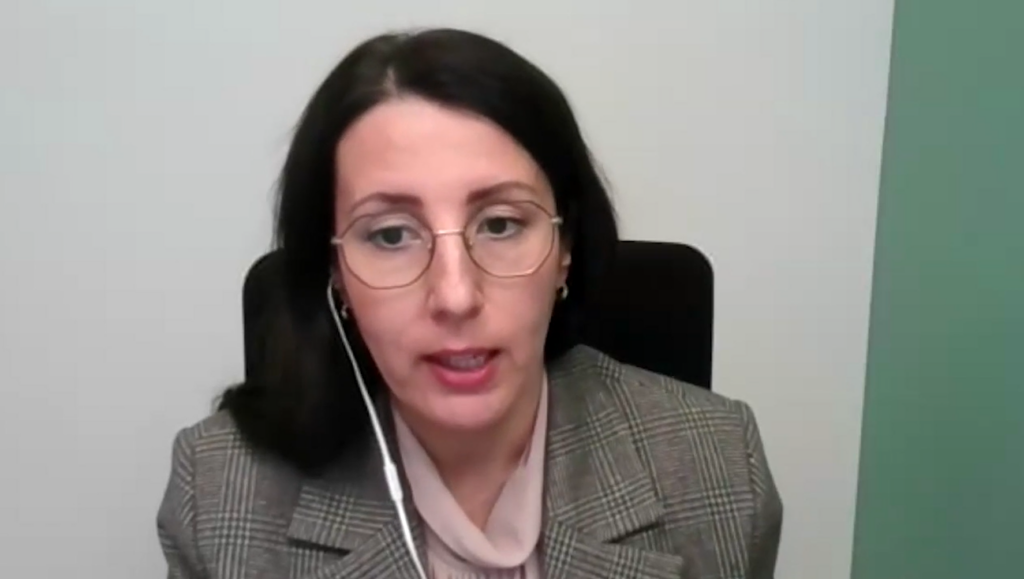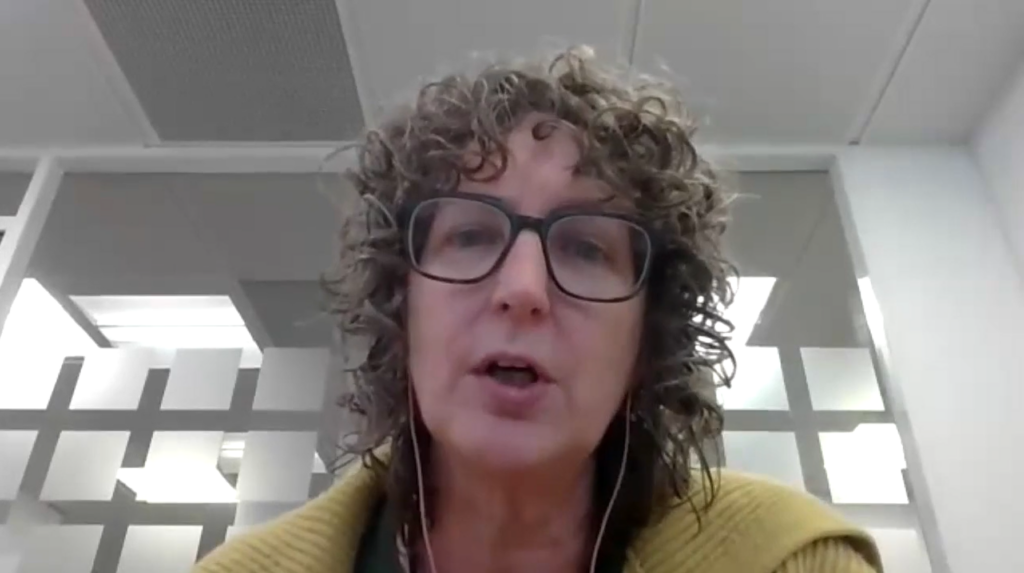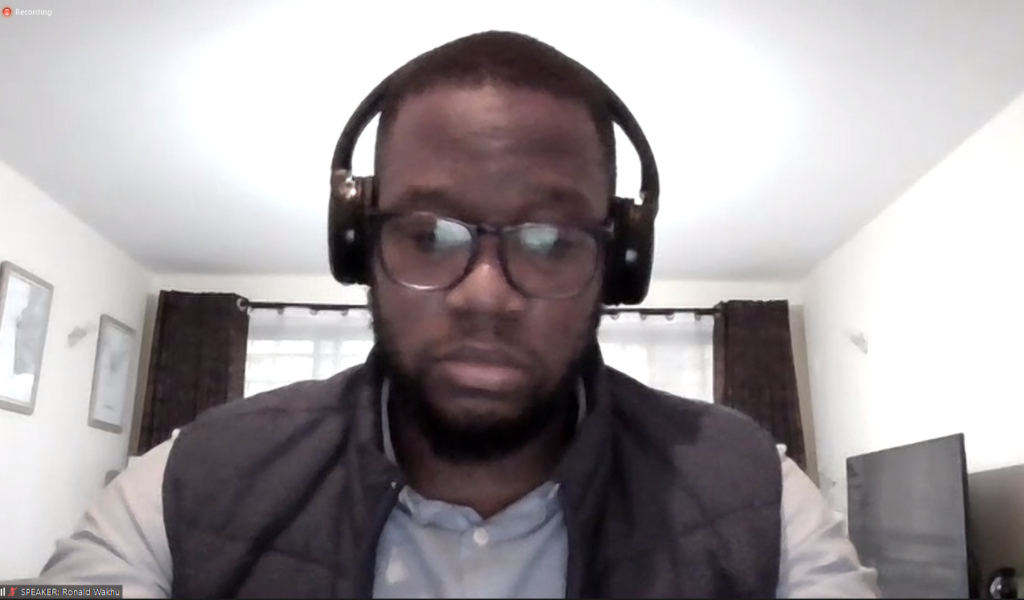Today, millions of women, children and adolescents do not have access to the healthcare they need, particularly in low- and middle-income countries: every two minutes, a woman dies from complications in pregnancy and childbirth. Government health budgets face a $33 billion funding gap to address this. The private sector is a crucial partner in increasing access to services and securing greater financial investment.
In a discussion hosted by Business Fights Poverty and the Global Financing Facility earlier this month, panelists explored the critical role of businesses in advancing heath outcomes for women, children and adolescents during the virtual 2-day Global Equity Summit. Facilitated by Business Fights Poverty’s Dr. Annabel Beales, the webinar entitled, “How Can Businesses Transform Health Outcomes for Women, Children and Adolescents?” provided insights on how cross-sector collaboration and financial strategies are crafting healthier generations. Panelists included the Health Finance Coalition’s Ronald Wakhu as well as the Global Financing Facility’s Sneha Kannageanti, Malawi public health expert and human rights activist Maziko Matemba (Malawi Health and Human Rights Education Program), MSD’s Lilia Zakirova, and Primark’s Sue Tym.
Here is what we heard:
Q: Why was the Global Financing Facility established? What have been the key issues and trends regarding the health of women, children, and adolescents?
KANNAGEANTI: When the Global Financing Facility was established at the Financing for Development Conference in Addis Ababa in 2015, it was to address the challenges that women and child health is still facing in partner countries. You need a systemic and multi-stakeholder response that aligns financing, that brings evidence-based interventions and supports countries to take the lead on developing how they’re going to tackle the bottlenecks in their context. In many cases, there is a private sector provider involved, whether it’s a for-profit or not-for-profit, whether they’re using products and commodities that are being produced by private sector, whether it’s technology and innovation. So, there was this early recognition that we have to have private sector at the table for the GFF.
When we first started with the GFF being launched, the private sector engagement tended to be much broader and vary across countries. Some countries did service delivery, some had supply chain and others in innovative financing. What we are seeing now in the post-Covid era is that there’s more of an emphasis on scale and sustainability, and health system resilience. And governments are increasingly thinking about what the private sector’s role is in achieving more resilient health systems for the next challenge that may come up and how do we proactively bring everyone in and what does that mean for health of women and children. At the GFF, we have a range of activities relating to private sector around supporting governments to think through this, to develop their programs together with private providers, leveraging the capacity and expertise that private providers have on the ground, as well as looking at innovative financing mechanisms to mobilize additional resources and the important partnerships that can be created with businesses, to bring the expertise and capacity to tackle country problems.
We have a range of activities within the private sector around supporting governments to think through this, to develop the program together with private providers, leverage the capacity and expertise that private providers have on the ground, as well as looking at innovative financing mechanisms to mobilize additional resources.
Q: What is the situation in Malawi and how is the GFF helping?
MATEMBA: Since 2018, Malawi has benefitted …from the support of GF in a variety of ways.
I represent civil society in the GFF …our role is the make sure that has been committed at a global level is implemented at the country level. And private sector has been one of those areas that has been a little behind in terms of partnership. Even though the GFF has been pushing that area, it is countries that are members of the GFF that must make sure they align into all the five performance areas of the GFF. One of those indicators is to make sure that those countries HAVE leadership and partner alignment, progress in gender equality, and protect and promote the high-quality essential services. Most important is to build more resilient, sustainable financing for health, which includes private sector engagement, but also sustain related to focus on results.
Our role in the partnership is to make sure that we have the resources to achieve what GFF has tried to stand for.
GFF has supported Malawi in terms of making sure that we have the country leadership and the alignment of the investment case so that it’s talking to maternal, newborn and child health, but also making sure that there’s gender equality and no disruption of services. Even during COVID-19, GFF support Malawi in making sure there was no disruption of essential services.
When it comes to financing, Malawi has developed a robust private sector engagement strategy.






Q: In the private sector, why is the health of women, children, and young people an issue for your business – and how are you taking action?
ZAKIROVA: I represent MSD … and our company focuses on discovering, developing, and providing innovative medicines and vaccines which save lives of people around the world.
We have broad and multi-scale philanthropic and social investment programs which help advance health equity around the world and address unmet medical needs and address barriers.
Improved maternal health care services not only impact women but children, families, and communities.
I’m lucky to have good access to good health care, but it should be available to all, because it’s a matter of future choices, of future opportunities for children’s education, of women coming back to the workforce.
It’s not only about the money, but also about sustainability of health care systems in general.
Every two minutes a woman dies because of complications in pregnancy and childbirth. Most of these deaths can be prevented. Most of the deaths unfortunately are happening in low- and middle-income countries.
In Kenya …MSD collaborates with a local company to establish an emergency transportation hotline for pregnant women in Nairobi. This is particularly important because of the risk factors contributing to maternal mortality for women living in remote rural areas.
Also in India, our partners are using childbirth to provide women with information on reproductive health issues, self-care, access to quality maternal health, etc.
In both examples, it’s not only about the partnership with NGOs, it’s also about the technology …and advancing health care services.
This is where there is the connection between our business interest …we are using the experiments that we have with mothers and then scaling them in our business project.
Q: As a garment company, why is Primark focused on the health of women?
TYM: We are a global clothing brand …so we’ve got manufacturing across the world including China, Bangladesh, India, Southeast Asia, and Turkey.
Most of the people who work in our supply chains are women, and there is evidence that women and girls are disproportionately impacted by both physical and mental health challenges because of gender norms around women’s work, unpaid care work, lack of access to skills, training, work opportunities, pay inequalities, sexual harassment GBV … I could go on. And we also know that unsafe working conditions, bullying sexual harassment, all contribute to stress and physical insecurity. That leads to absenteeism, higher turnover, and people leaving impacts productivity, which in turn creates financial and reputational loss for employers. A recent report shows that tried to understand women’s mental health in garment factories, which found that a supportive work culture, safety in work, financial security and good prospects, mental health and gender are all intrinsically linked.
So, for business it makes sense to build cultures which improve both physical and mental safety and health.
Due to the negative social stigma that surrounds mental health, people find it hard to identify mental health issues but also that can’t get help due to access and affordability. Thus, what we tried to do is build peer-to-peer and women-to-women counselling services that give workers and managers access to counselling within factories and to referrals where needed.
What we found is that this starts to build trust between managers and workers, and in turn it creates support systems in the factory, which creates a better working environment and overall reduces stress.
So, in the end it becomes a no-brainer.
Q: What are the challenges and opportunities of securing private sector investment in support of the health of women and children?
WAKHU: We have seen there are gaps both on the investor side and on by enterprises seeking capital to expand and scale operations.
On the company side, often we see strong companies with strong business models with goods and services that are very impactful to society, women, and young people. But they often face the challenge of articulating their impact to prospective investors as well as to consumers. That means they are limited in their ability to attract capital and miss out on opportunities to attract capital from investors who may like their impact story.
As HFC, we help them craft a more compelling impact story that will enable them able to attract the kind of investors they need to scale up. This means who are you reaching? How is your product creating long last impact?
The second challenge is that there is a risk perception. What this means is that often some investors, they are unfamiliar in investing in such enterprises whereby may not see the business case or the impact case. We are also coming to realize that traditional business models may are not aligned with desired healthcare outcomes. So, what we see are more blended finance structures. For example, the Transform Health Fund, which is a joint private debt fund pulls capital from both commercial investors and catalytic investors. That means opportunities will be de-risked for commercial investors and catalytic investors will reach their desired impact goals. At the Transform Health Fund, we are excited that businesses will reach underserved and low-income communities, which are often women and children.
The final challenge is that there is a screening and sourcing issue …which means screening criteria …often tend to exclude underserved demographics, which are often underserved women and children.
As investors …we need to have an honest self-evaluation and develop better screening criteria through the investment process and augment our deal teams to be more diverse, and also enhancing the investment criteria to ensure more impactful populations are reached.
WATCH: Webinar | “How Can Businesses Transform Health Outcomes for Women, Children and Adolescents?”
###